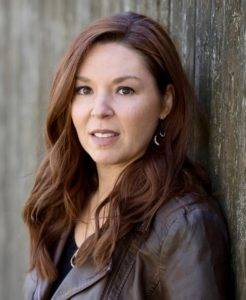This may come as a surprise to the folks over at the New York Times (I know they have their hands full trying not to become extinct and all), but really, if they’re going to publish essays about a genre of literature, they really should know something about it. And I don’t mean skimming the latest titles on the bestseller list and then using those five or six books to make sweeping generalizations about the thousands of others on the shelf.
I’m referring to the essay, The Parent Problem in Young Adult Lit, that recently appeared in the Book Review. The overall thesis seems to be that in the good ‘ole days, parents in children’s books at least had the good sense to be dead, leading to the “triumphant rise” of the orphan. But now, for shame, the “hapless parents” in young adult novels are “afflicted by anomie, sitting down to another dismal meal, or rushing out the door to a meeting,” which makes them “slightly ridiculous.”
The essayist backed up this conclusion by citing six, count ‘em six, contemporary young adult novels: Once Was Lost; How to Say Goodbye in Robot; Twilight; Wintergirls; Shiver; and The Hunger Games. Out of those six titles, she doesn’t even bother to give a single example from either Shiver or The Hunger Games. So really, the entire essay is based on four books.
I don’t know about you, but I think that qualifies her for an F on most college campuses. You can’t just cherry pick a few titles to back up your thesis while ignoring the dozens (hundreds) of titles that contradict it. She doesn’t give one example of a contemporary YA novel with functioning, engaged parents, as if they don’t exist—a fact I can easily back up with my own young adult series. (Hey, there are three books in the Amor and Summer Secrets series, so that should be enough to prove my point, right?)
But even putting the essayist’s poor research aside, and even accepting that the trend of the “hapless parent” exists in contemporary YA, I still don’t see the problem with this depiction. There are plenty of bad parents out there. There are plenty of teens reading and empathizing with a character whose dad is always working, or whose mother is in rehab, or whose parent can’t cook a decent dinner.
While these characters might seem “ridiculous” to a The New York Times essayist, I doubt they do to thousands of teenagers.
It’s as if the essayist lacks a basic understanding of contemporary teens as well as young adult literature. Because clearly, she doesn’t have much of a grasp on the genre if she’s actually wondering why YA parental characters are “less consequential…the father in Once Was Lost becomes somehow peripheral, his problems more muted and less interesting than his teenage daughter’s.”
Um, wow. You think?
Young adult novels are told through the eyes of a teenager. They’re also most often told in the first person. Of course that teen’s problems seem more “consequential” than the parents. We’re purposely only getting the teenager’s point-of-view—that’s sort of what makes a novel fit the young adult genre. But really, do I need to explain that to a New York Times reporter? Because that’s like explaining why mystery novels are plot driven or why fantasy novels have so many funky names. You would think the folks at the Book Review would kind of get that already.
But you know, whatever. I guess I’ll just go back to writing my WIP about the hapless single dad of two teenager daughters who has the audacity to pull double shifts to put a roof over their head. You know, how ridiculous.
POP CULTURE RANT: Glee & Jessica Simpson
Okay, I love Glee. Fine family fun! But last night, there was one line in particular that had me screaming at the TV. It was when Finn looked up at his basketball coach and said, “He pulled a ‘Jessica Simpson.’ You know, lost his fiancé, gained 40 pounds, and stopped showering. And everyone acts like it’s totally normal.” Say it with me: Jessica Simpson IS NOT FAT. Not even close. Yes, at one point she lost a ton of weight to shrink to a freakish size 0 to play Daisy Duke. But the fact that she chose to return to a more normal size 4, does not make her fat. Yes, there was that unfortunate mom jeans picture. But even then, she probably wasn’t more than a size 6. So, get over it! Stop picking on her weight, Hollywood. Or instead of being one of the world’s fattest nations, our next generation is going to be the most anorexic nation. And historians will trace the epidemic’s roots all the way back to the mom jeans.



haha, great minds think alike! I posted about this very issue the other day.
Right on, Diana … but in the case of SHIVER, c’mon. My copyeditor would have had a field day with those parents. That was an example of poor writing/editing. I mean, a wolf crashes through the glass windows of a kitchen, attacks a teen, everyone is slipping on the blood all over the floor, the place is TRASHED, and the next day the kid is in there making cookies and calmly talking to her mom? Hello? Could someone at least have called a carpenter to replace the windows? Yes, teen peers dominate the landscape in YA fiction, but in any genre we have to get the basic facts right.
Thanks for this post! Gets us all thinking …